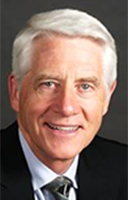
In his December column, former ambassador Colin Keating outlined the concept of a research project which the Centre is about to undertake on Strengthening Multilateralism through UN Reform.
This project has its genesis in a speech that Colin gave on the occasion of UN Day last October, in which he challenged New Zealand to undertake a project that results in recommendations for a lead role in restoring the credibility and effectiveness of multilateralism.
The Centre proposed to the UN Association of New Zealand (UNANZ) that the two bodies respond to this, and twin on a research project on the subject. The governing bodies of both organizations endorsed the proposal.
Colin and I, as co-managers of the project, have been preparing the nature, timing, and product of the project. Easier said than done, but of intense interest and, hopefully, some significance.
So, what of the details?
As Colin put it in his speech on UN Day:
“Don’t be naïve about the UN. Frankly, I think that one of the reasons why support for the UN is waning in New Zealand is because too many of its supporters in the past have sought to oversell its role and been slow to face up to its limitations and failings. It is time to be much more upfront about the need for reform.
Reform can be a great focus for lobbying politicians. There is a problem. The UN needs reform. New Zealand is ideally placed to be able to contribute hugely to a transformation. So, as a fourth challenge to you all, why not demand that New Zealand set up and properly resource a six-month project involving politicians from all parties, officials, the defence force and civil society to make recommendations on a role for New Zealand to take a lead in restoring the credibility and effectiveness of multilateralism.”
The details, developed in consultation with the Centre’s Board chair and the UNANZ President, are beginning to take shape. The project was ‘launched’, more or less, this past week when its content was sent to a wide-ranging group of people, to ascertain their level of interest, and seek their engagement, in the work.
The background to the project is the increasing concern, held around the world, over what appears to be an undermining of the ‘multilateral rules-based order’ (MRBO), centred largely though not exclusively through the UN, that has formed the imperfect but comprehensible framework for international relations over the past 75 years.
Some national leaders, most notably from France and New Zealand, have articulated at the UN General Assembly in recent years, the need to preserve and revive the essence of the MRBO, lest the international community of states lose its way in grappling with the global problems that confront humanity in the new century.
Their speeches are both visionary and of rhetorical worth, but it does raise, not for the first time, the question of substance. What does ‘strengthening multilateralism’ mean, in terms of serious and focused proposals for conceptual and institutional reform, and in which areas and at which level of analysis?
Addressing these substantive questions is the challenge of our project.
Lest we be seen to presume the answers, which we certainly do not pretend to have, we have compiled a questionnaire that surrounds the broad areas of UN reform. This has gone out to a range of New Zealanders – former political leaders, former diplomats, academic experts, civil society representatives. At the appropriate time, we shall consult with current parliamentarians and officials.
No doubt we shall convene some meetings on the project, or at least speak to the project at certain NZCGS and UNANZ meetings. And the aim is, of course, to speak to, and listen to, everyone who is interested in the subject.
We hope to have the project wrapped up, within six to nine months.
More anon.
Dr Kennedy Graham is Director of the NZ Centre for Global Studies. He is a former diplomat, UN official, university teacher and MP.

0 Comments